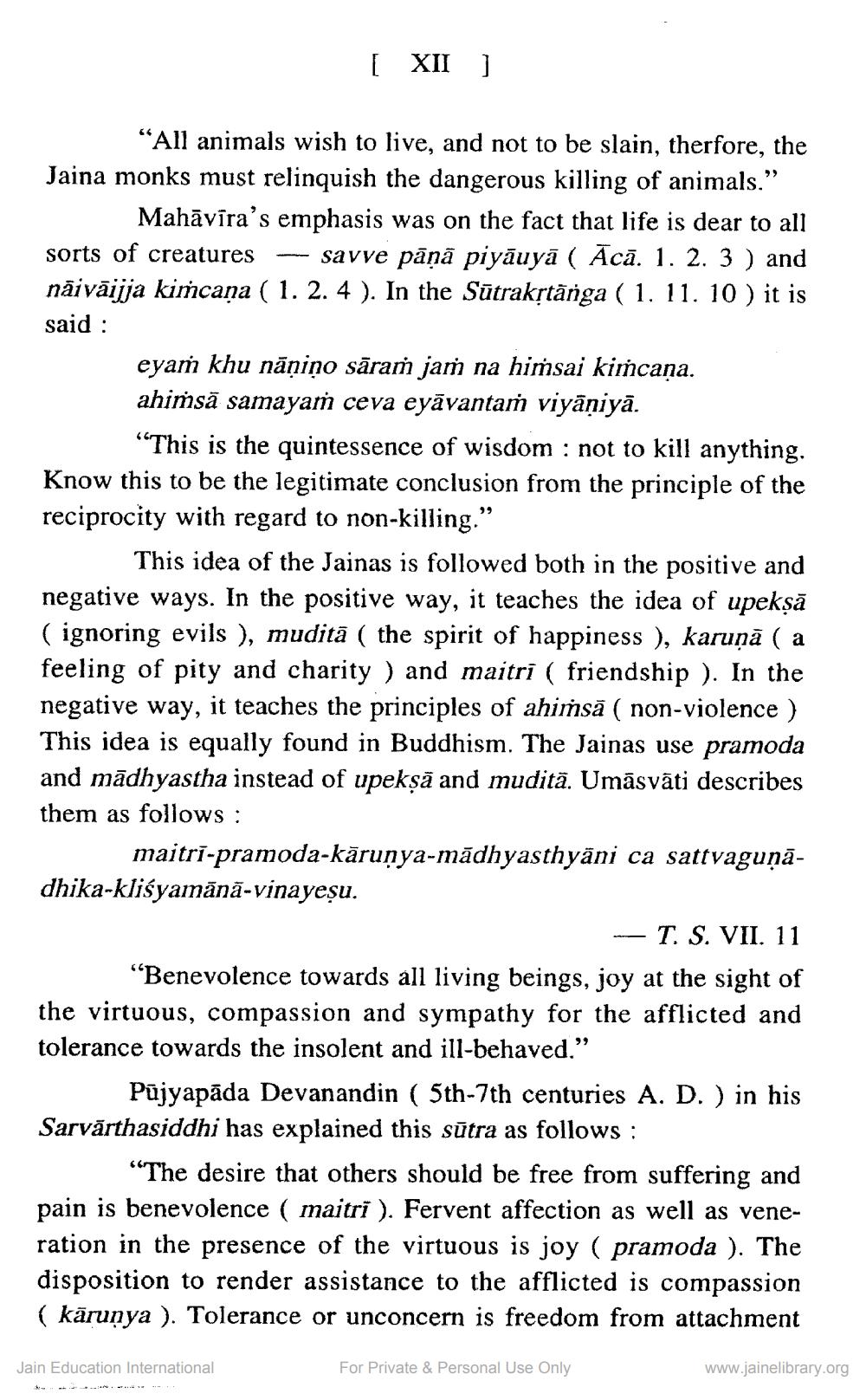________________
[ XII
]
“All animals wish to live, and not to be slain, therfore, the Jaina monks must relinquish the dangerous killing of animals."
Mahāvīra's emphasis was on the fact that life is dear to all sorts of creatures - savve pāņā piyāuyā ( Ācā. 1. 2. 3 ) and naivāijja kiscana ( 1. 2. 4 ). In the Sūtrakstānga ( 1. 11. 10 ) it is said:
eyaṁ khu nāņino sāram jam na hiṁsai kimcaņa. ahiṁsā samayam ceva eyāvantaṁ viyāniyā.
"This is the quintessence of wisdom : not to kill anything. Know this to be the legitimate conclusion from the principle of the reciprocity with regard to non-killing.”
This idea of the Jainas is followed both in the positive and negative ways. In the positive way, it teaches the idea of upekṣā ( ignoring evils ), muditā ( the spirit of happiness ), karuņā ( a feeling of pity and charity ) and maitri ( friendship ). In the negative way, it teaches the principles of ahiṁsā ( non-violence ) This idea is equally found in Buddhism. The Jainas use pramoda and mādhyastha instead of upekṣā and muditā. Umāsvāti describes them as follows :
maitri-pramoda-kārunya-mādhyasthyāni ca sattvaguņādhika-kliśyamānā-vinayeșu.
-- T. S. VII. 11 “Benevolence towards all living beings, joy at the sight of the virtuous, compassion and sympathy for the afflicted and tolerance towards the insolent and ill-behaved."
Pūjyapāda Devanandin ( 5th-7th centuries A. D. ) in his Sarvārthasiddhi has explained this sūtra as follows:
"The desire that others should be free from suffering and pain is benevolence ( maitri ). Fervent affection as well as veneration in the presence of the virtuous is joy (pramoda ). The disposition to render assistance to the afflicted is compassion ( kārunya ). Tolerance or unconcern is freedom from attachment
Jain Education International
For Private & Personal Use Only
www.jainelibrary.org




